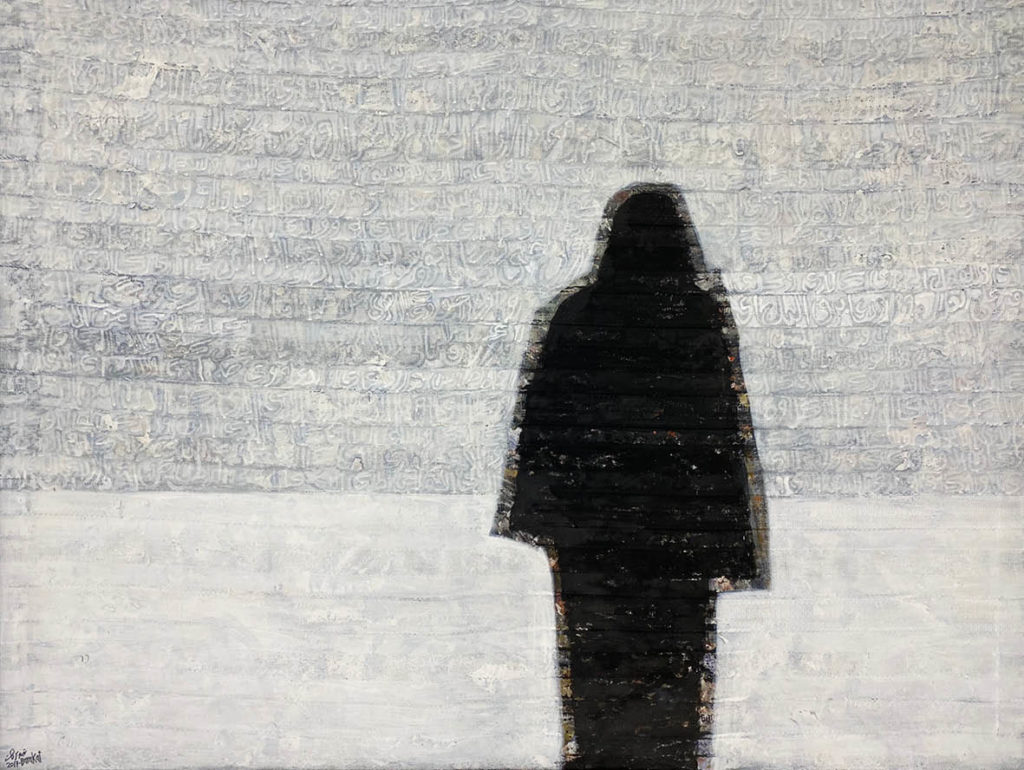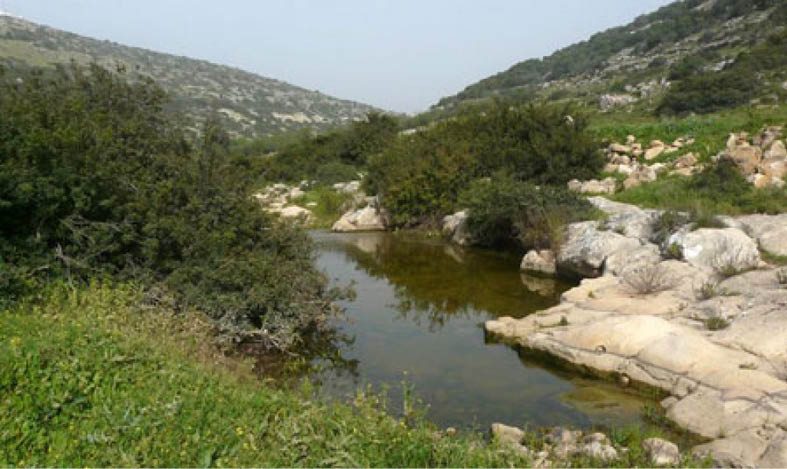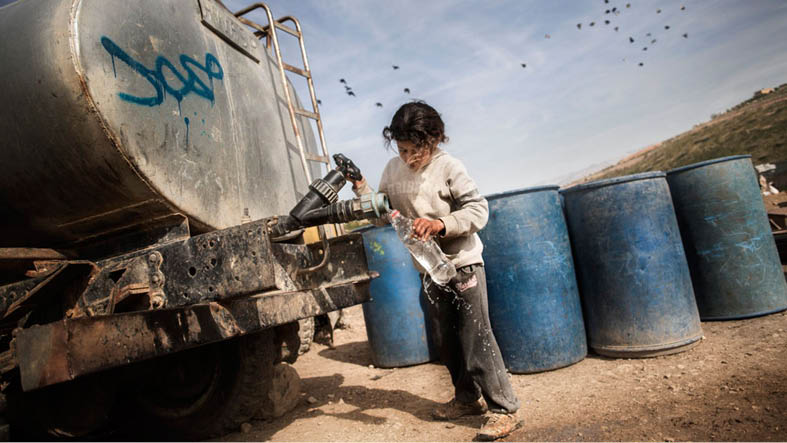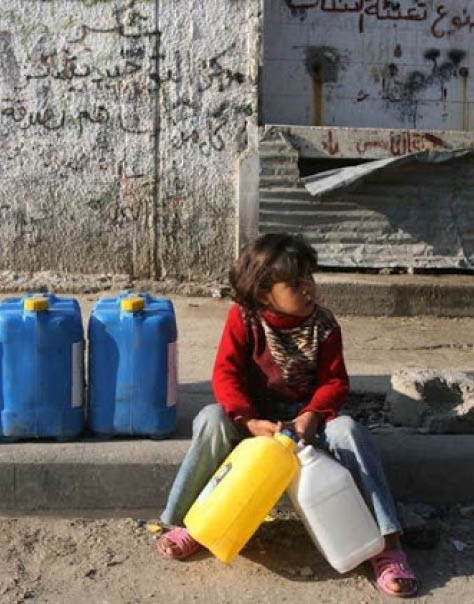Under House Arrest with my Minor Son
My name is Sireen A. I am a housewife and the mother of three boys and one daughter.
On November 1, 2015, Mohammad was in ninth grade, 14 years old. He had just finished studying for his midterm exam and gone outside to sit with his friend in my husband’s car in the yard, when at 4 pm six police officers arrived in civilian clothing. They were looking for a person named Mohammad A. and told us that they would take my son to the police station in Navi Ya’qub in Beit Hanina for investigation and then bring him home. They did not have an arrest warrant and took him by a private vehicle, not a police car. My husband accompanied them to the police station, but they did not allow him to enter – and he did not know that he was legally entitled to be there with our minor son during the interrogation. My husband waited until midnight. Then, they asked him to go home and told him that Mohammad would be presented to the Central Court the next day at 8:00 am.
The next day was Mohammad’s first court hearing, and he was accompanied by the lawyer Mohammed Mahmoud. The charge was that he had thrown stones at the streetcar that passes the Shu’fat neighborhood. There was no evidence nor pictures of him on cameras in the street. Three other children were tried in the same case. Mohammad remained in Ramla Prison for about a month and then spent 15 days in Hasharon Prison. During his time in Ramla prison, he was beaten and searched by the prison administration. The time he spent in prison was this long because the police could not prove the charge against him. He was implicated because a child had talked about him.
During his time in prison, there were court sessions twice a week until the judgment was passed on December 14, 2015, and Mohammad was sentenced to house imprisonment for a year. We had to pay a fine of 5,000 shekels. At times, we thought that actual prison would have been better for Mohammad because there was the possibility that at the end of house imprisonment, he would be sentenced to actual imprisonment rather than community work. House imprisonment is not considered an actual prison term.
The 45 days between Mohammad’s arrest and the sentencing were very difficult for me. My husband was hospitalized for two weeks due to high blood pressure. My oldest son had to leave his university near Netanya to support our family and follow Mohammad’s court hearing either alone or with his father.
During Mohammad’s house arrest, I became a prisoner with him. Initially, he was not allowed to attend school and I had to stay at home all the time. In February 2016, he was allowed to return to school based on the condition that he go to school on the Jerusalem side of the Apartheid Wall, rather than in Ar-Ram, and that he must be accompanied on his way there and home. It was me who escorted him every day. Repeated police incursions into our house to make sure that Mohammad was committed to the house imprisonment were difficult to bear as well. The police came to our home every two or threedays, always, always between 12 midnight and 4 am.
After a year of house imprisonment, Mohammad was sentenced to community work for six months; he had to clean an Israeli home for the elderly and was forced to quit school because his working hours were from 8:00 am to 2:00 pm. After three months, however, Mohammad fell on the stairs and broke his right hand. So he returned to school in April and May 2017 and completed his community work in June, July, August, and September that year. The school was very cooperative and allowed him to move to the eleventh grade.
* Published originally by WCLAC, Women’s Voices: Jerusalem Women, available at http://www.wclac.org/Wvoices/All?C=3&page=2

Chemical Spraying of Farmland
My name is Amal N. I am a mother of six daughters and three sons and a farmer. My daughters are married and work with me on our land, 15 acres in Khan Younis, 150 meters away from the eastern border of Gaza. I begin work every day at 6 am. My husband and children, sometimes also my grandchildren, weed, tend to our crops, and give water to our animals. Around 11 am, I go back to do the housework while my husband and children remain on the land. I return around 4 pm, bringing them food and water.
For the last five years, our land has been sprayed twice a year by the Israeli army with chemicals mixed with poisonous gases – frequently in deliberate action after the crops have matured. In May 2018, they sprayed ten acres of our wheat crop (grown in January and harvested in May). We lost 8 tons of wheat (which equals 2400 Jordanian Dinars.) In February 2019, 4 acres of land planted with peas were sprayed by Israeli army aircraft. The entire crop was destroyed after the land had been plowed, fertilized, and planted with seeds that cost 2,500 shekels and would have yielded 12,000 shekels. We must bear this loss; there is no compensation.
The spraying affects my family on many levels. My husband suffers from asthma; once he lost consciousness while working. Economically, the situation is tragic not only for the farmers. The amount of produce in the market decreases and the prices rise, as Gaza is small and besieged. The environment is affected when we must burn crops after they were destroyed by chemical spraying. The sprayed material affects the fertility of the soil and reduces production, and we must stay away from the land after it has been sprayed for at least one week before we can prepare it for the next crop to reduce our exposure to the chemicals. I plant only seasonally, as l must rely on rainwater.
In June 2019, poisonous materials were sprayed on the eastern border while my 26-year-old daughter Nashwa was working on our land. She was exposed to these materials and developed a skin rash that spread all over her face and body; she had to receive medical treatment for weeks.
The poultry and animals I keep on my land are highly affected as well by the chemical spraying and the high levels of salinity and contamination of water. I have lost more than 1500 chicken and seven sheep.
* Originally published by WCLAC, Womens’ Voices, available at http://www.wclac.org/Wvoices/All

Living Surrounded by an Environmental Disaster
My name is Yasmine, I am 35 years old and suffer from health issues and financial problems caused by pollution. A torrent of wastewater mixed with solid waste flows from the settlements Kiryat Arba, Ja’bara, and Kharsina that surround our village Wadi al-Samn, south of Hebron. For decades, it has flown over 49 kilometers along the road, beginning south of Hebron, running by the villages Yatta and Samu’a, and reaching the Negev south of the West Bank. It leaves behind land that is full of diseases, insects, and unpleasant odors. It affects our health and leaves our lands barren.

I must spend my days near this pollution because as a mother I must stay home with my children. I’m enrolled at Al-Quds Open University but take most of my lectures on my computer and study at home; I go to the university for examinations only. Because we must breathe the polluted air, we are suffering from several health issues and diseases. The torrent also damages the land it passes and the surrounding areas. It affects our land and that of my family. We used to plant olives, plums, and many other fruits, but that is no longer possible because salts have accumulated in the soil.
The problem is worse in winter because the torrent floods and spreads the contaminated wastewater and solid waste on the surface of a larger area of land; it also infiltrates the water that irrigates the area east of Yatta (Al-Rihiyeh well).
This problem has highly affected our health. My children and I must visit the clinic in our village regularly for the treatment of various dermatological diseases and because I suffer from the chronic inability to breathe. It affects our finances because I have to spend a lot of money to buy medicines and pesticides and we are losing income because our land is damaged.
We Have no Access to Clean Water
I am Amna S. I am 60 years old and live with my husband and my children in a house of approximately 80 square meters in Wad al-Matwi, Salfit governorate. I am a housewife and work in agriculture and sheep farming.
Every day, I wake up around 6 am to prepare breakfast for my family. When there is no water in our tank, I walk around 400 meters to Ain al-Matwi and fill water in bottles for use throughout the day. This takes me somewhere between half an hour to an hour, it is difficult, and I feel tired and exhausted. If we get water from the municipality and can fill our tank, it may last us up to a week. Next, I clean the house and then grow vegetables, such as tomatoes, mulukhiya (Egyptian mallow), and zucchini, and graze our sheep that produce milk and cheese. This is our source of livelihood; I work with my family and we depend on it.
The spring water we use is contaminated by sewage water from Ariel settlement. It affects humans and our sheep. My husband is 70 years old and has asthma due to the bad smell of the settlement’s solid waste. Many times, he went to Salfit municipality and the local government to solve this problem, but without success. Every six months, some environmental experts come and sterilize the water with some sort of material. I often worry whether one of our sheep, our only source of livelihood, might die from contaminated water. The occupation [sic] wants to expel us from our homes or kill us, but indirectly. I wish someone could find a solution.
My daughter and I are most affected because my husband and sons go to sell cheese and milk to the neighboring villages, while we always stay and work at home.
Kidney Disease Caused by Contaminated Water
My name is Hanan, and I am 63 years old. Before moving to Gaza, I lived for twenty years in Saudi Arabia in the city of Najran, and there I never had any complaints about my kidneys. I then moved to Gaza, and since 2009 have been diagnosed with kidney failure in both kidneys. My life revolves around dialysis. It takes four hours each time, and I must do it three days a week.
I not only hear about water pollution in Gaza, I see it with my naked eyes and smell it in the water that comes to the house. This water is not suitable for drinking or cooking. I know that one of the causes of kidney failure is water pollution. So now I buy water, as I cannot use the water that comes from the municipality. I fill the tank with 100 liters of fresh water every week for drinking and cooking.
I constantly fear for my sons and grandsons because I do not want them to become sick with the same disease due to the polluted water. During the nights, I cannot sleep from severe pain. I sleep only during the dialysis session at the hospital and for three hours right after it has finished. Otherwise, I do not sleep.
My 31-year-old daughter Lina accompanies me to the dialysis session. She is the one who takes care of me during my treatment and after I return from the hospital.
I am deprived of living a normal life and left out of many joys because Gaza is under blockade and polluted. Even the air and soil are polluted by what the Israelis are doing and due to the occupation.
* Originally published by WCLAC, Womens’ Voices, available at http://www.wclac.org/Wvoices/All
My Whole Life Is Linked to Water
y name is Sahar, I am a young, single Palestinian woman. Together with my mother, four brothers, their wives and children, altogether 21 people, I live in my family’s three-floor house. I successfully finished high school, but the financial conditions did not allow me to complete a university education. Now, I volunteer in a feminist association in the village but spend most of my time working in agriculture and raising sheep, like more than 80 percent of the women in the village. We make the products, and the men go to the market and sell them outside the village.
I work more than 13 hours a day. After finishing the housework with the wives of my brothers, I head to work, following up on the crops and taking care of more than 50 heads of sheep. We do hard, tiring work because it is our only source of income.

Our whole life is linked to water. Work is already hard when we have it, but often it is reduced and sometimes completely cut off. Two years ago, Israeli occupation forces installed pumps and pipes to steal water for the nearby settlements Mahala and Hamra. They occupied the most important artesian well that is owned by the village, located on its land, and feeding the whole area. This reduced the village’s share of water to less than a quarter of what we had before.
The water from the well now reaches the village only one day a week, and we have to buy water. Most of the time, temperatures around here are between 38 and 45 degrees Celsius. Since the amount of rain is low, our need for water has become the preoccupation of all. All villagers suffer, especially the women. In the association, the lack of water and the related problems are the focus of our meetings. Personal hygiene and the possibility of an Amoeba outbreak have become serious and worrisome issues. Even when we buy water, it is sometimes unsuitable for drinking and has a nasty smell.
In the association we developed temporary solutions. For example, we distribute water, especially drinking water, according to the needs of a family based on the number of individuals. Because we had to sell livestock when we could no longer give them enough water, the women decided to help each other and share the cost of water for the animals. We had to sell fewer pieces of livestock, but we stopped buying new animals, and this greatly affects our levels of income.

Sometimes, we laugh when we meet, but we cry more when we decide to sell livestock to reduce the consumption of water. We weep and grieve for the season that comes and goes without us being able to farm out of the fear that we might lose the crops. We share everyone’s concerns, and I suffer what most women suffer.
The problem of water shortage affects women more than men because women are responsible for cleaning the house, planting, and caring for livestock.
My entire life is nothing but work. I have to work hard to make sure we have water; I am afraid to rest because I might lose our only source of income. All my ambitions have changed. I see a frightening and dark future and worry about how long we will be exposed to this dangerous condition.
* Originally published by WCLAC, Womens’ Voices, available at http://www.wclac.org/Wvoices/All


